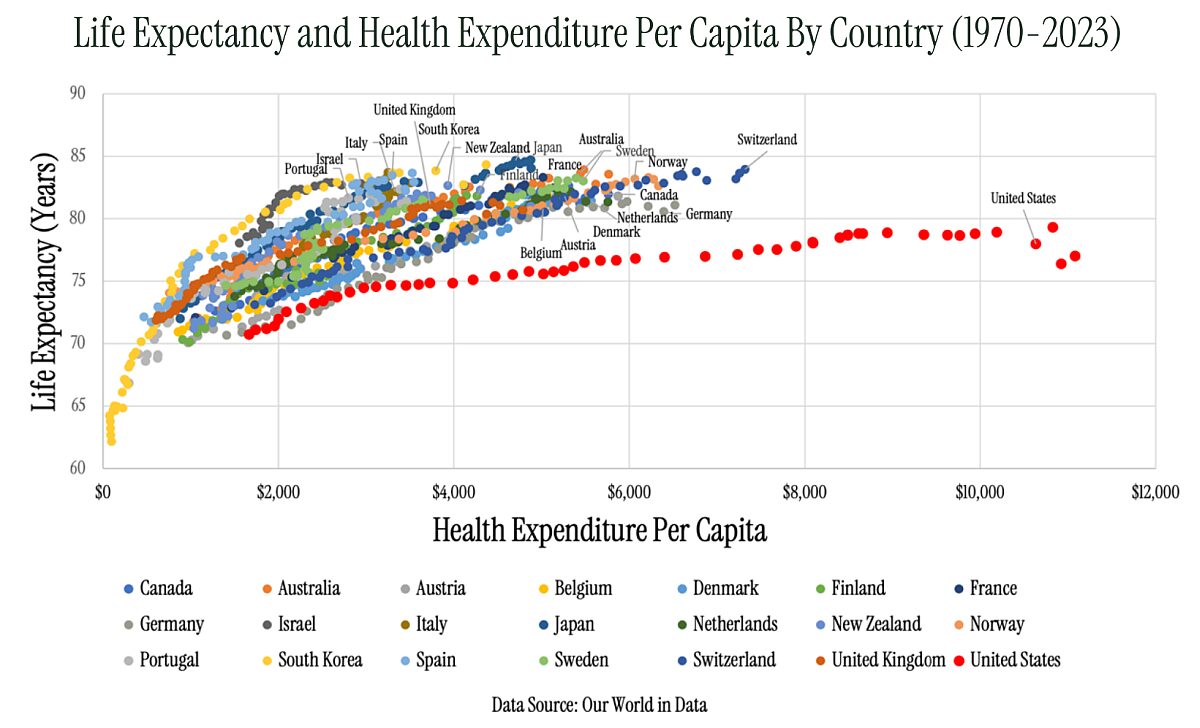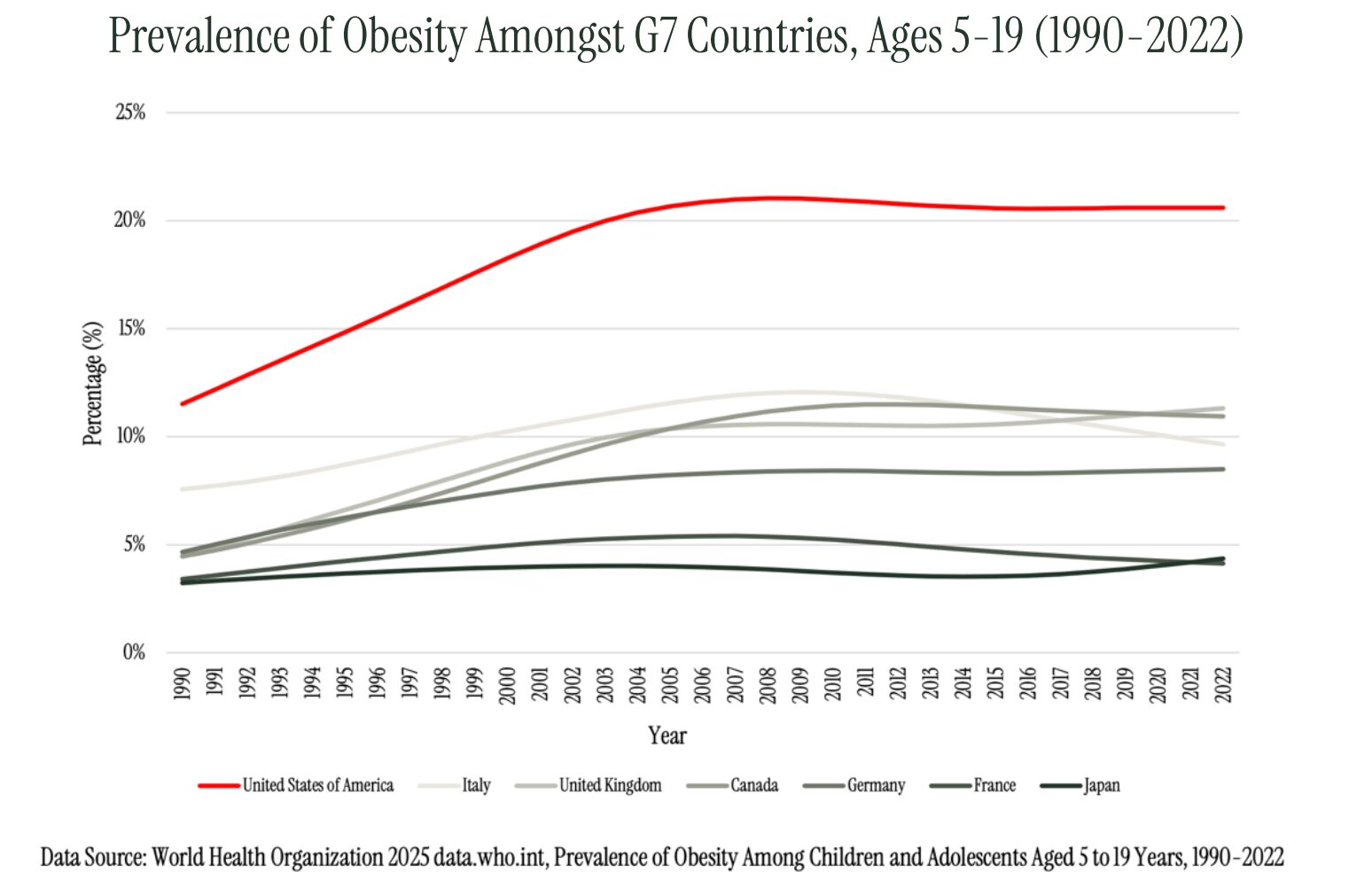Nutrition experts have praised a much-anticipated report from Robert F. Kennedy Jr’s Make America Healthy Again (MAHA) Commission for cogently outlining the parlous state of America’s health, but said actions taken by the Trump administration actively undermine the report’s stated goals.
While some food and farming groups slammed the report for “recycling RFK Jr’s pet peeves” and spreading “fear-based misinformation,” others praised its “devastating critique” of America’s health problems.
However, they stressed that at this stage, “it’s just talk,” with the rubber to hit the road in mid-August when the MAHA Commission will release a follow-up report outlining how to fix the problems, a much tougher task.
Today’s report identifies four key drivers claimed to be behind the “childhood chronic disease crisis”:
- Poor diet and the “shift toward ultra-processed foods.”
- Environmental chemicals it claims are “linked to developmental issues and chronic disease.”
- Lack of physical activity, excessive screen time, sleep deprivation and chronic stress.
- Overmedicalization, reflecting RFK Jr’s concerns over “overprescribing medications to children.”
Pesticides and food additives
Pesticides do not feature prominently in the report, although it cites studies (which farming groups say are cherry-picked) linking glyphosate and atrazine to adverse health outcomes. However, it also notes that a review of common herbicides is coming in 2026 and that actions to restrict crop protection tools “must involve thoughtful consideration of what is necessary for adequate protection, alternatives, and cost of production.”
As expected, the report attacks synthetic dyes and selected food additives such as BHT, Propylparaben, and titanium dioxide, a whitening agent approved as a color additive exempt from certification in the US but banned in food products sold in the EU since mid-2022.
Artificial sweeteners including aspartame, sucralose and saccharin also come under fire, with the report noting that they have been “observed to interfere with the gut microbiome in some studies,” although industry groups have challenged these findings.
Seed oils, a particular bugbear for RFK Jr who has been encouraging firms to replace them with fats such as beef tallow against the advice of most nutritionists, are also singled out as part of a broader attack on ultra-processed foods, which other countries explicitly urge their citizens to avoid, claims the report.
While the Dietary Guidelines for Americans have over time switched from focusing on individual nutrients to encouraging healthier dietary patterns, they do “not explicitly address ultra-processed foods,” claims the report.
It also notes that federal crop insurance programs have primarily covered traditional field crops such as wheat, corn, and soybeans that are used in processed foods “while providing much less support for specialty crops such as fruits, vegetables tree nuts and nursery plants.”
Marion Nestle: ‘A stunning report… but at the moment, this is just talk…’
The focus on some of RFK Jr’s pet peeves can often distract from broader structural issues that limit access to healthy food and healthcare, acknowledged Marion Nestle, PhD, M.P.H., Paulette Goddard Professor of Nutrition, Food Studies, and Public Health Emerita at New York University.
But all in all, she told AgFunderNews, “It’s a stunning report, a devastating critique of what American society has done to its kids.”
She added: “It sure covers the territory, from food to cell-phone use. The report is particularly concerned about ultra-processed foods and food chemicals. Both deserve to be taken seriously. And it has some gems. My favorite: ‘American farmers are put at the center of how we think about health.’ Wow. This is real food systems thinking. I’m all for linking agriculture to public health.”
“The question, of course,” she said, “is how. For that we have to wait 82 days for the policy report. At the moment, this is just talk. The report is meant to be a call to action, but those actions will necessarily require taking on the food, agriculture, chemical, and pharmaceutical industries and I don’t see MAGA doing that. Indeed its budget, staff, and regulatory cuts are going the opposite way.”
Nutrition consultant Lisa R. Young, PhD, RDN, told us: “The MAHA report emphasizes that ultra-processed foods constitute a significant portion of American children’s diets, which I believe to be true. These foods are linked to various health issues, including obesity, type 2 diabetes, and behavioral disorders. I do however think nothing is wrong with seed oils, but rather the fact that they are found in UPFs.”
She added: “Another significant concern raised is the decline in physical activity among children, attributed in part to increased screen time and technology use… All this is true! Now, let’s see what happens. As for the [report’s attacks on specific] chemicals, I do think we need more research to back it up.”
Bill Dietz: ‘The report is both impressive and intimidating’
William H. Dietz, MD, PhD, Professor, Exercise and Nutritional Sciences at the Milken Institute School of Public Health told AgFunderNews that the report is “both impressive and intimidating. Impressive because of its length and extensive footnoting and intimidating because of the challenge of absorbing and fact checking the information.
“Of particular interest is the emphasis on chemicals as toxicants and chemicals in the food supply. One area of concern is that there is no mention of the need to sustain the monitoring systems that will need to be used to assess progress – notably NHANES (the National Health and Nutrition Examination Survey, which monitors Americans’ diets), BRFSS (the Behavioral Risk Factor Surveillance System, a health-related telephone survey), and others which provide the data cited in this assessment report.
“These may be dismantled by the budget cuts directed at CDC.”
CSPI: ‘Kennedy and Trump are pushing policies that will make Americans sicker and hungrier’
Health advocacy group The Center for Science in the Public Interest (CSPI) welcomed the report’s focus on ultra-processed foods, but said actions taken by the Trump administration actively undermine what the MAHA Commission says it is seeking to achieve.
According to CSPI president Dr. Peter G. Lurie: “How is the American diet to improve when Republicans are hell-bent on cutting SNAP benefits, slashing school meals, ripping millions of Americans from their health insurance coverage, withdrawing proposed rules that would reduce foodborne Salmonella, and laying off food inspectors?
“The administration has slashed programs to bring local food into schools, eviscerated government funding for research on nutrition and health, eliminated the office responsible for stopping lead poisoning in children, and is threatening access to life-saving vaccines.”
He added: “Kennedy and Trump are pushing policies that will make Americans sicker, hungrier, and more at risk from unsafe food. At this moment, that is the true risk to children’s health.”
Adam Drewnowski: ‘Surprised to see no mention of food prices or costs’
Adam Drewnowski, PhD, Professor, Epidemiology, at the University of Washington, told us he was “a bit surprised to see no mention of food prices or diet costs. The percent of energy from ultra-processed food (UPF) is not 70% ]as stated in the report] across all groups. That percentage varies depending on education, incomes, food expenditures, or even the value of your home.
“People living in multi million dollar homes are much less likely to be exposed to any UPF; they are the ones eating minimally processed salmon and leafy greens. So for diets to get better, education and incomes must improve as well.”
“The report spotlighted advancements that the panelists view as needed within our food system to better support children’s health, but a more holistic analysis of the extensive evidence-based scientific body of knowledge on food and public health needs to be included – an issue we hope the MAHA Commission remedies over the next 80 days as it prepares its actionable recommendations.” Institute of Food Technologists
American Soybean Association: Report is ‘brazenly unscientific’
While the report did not have a heavy focus on pesticides, as some farming groups had feared, American Farm Bureau Federation President Zippy Duvall said in a statement that farmers have been excluded from conversations that will impact their livelihoods.
The National Corn Growers Association in turn accused the MAHA Commission of spreading “fear-based rather than science-based misinformation about pesticides,” while the American Soybean Association (ASA) released a statement arguing that the “brazenly unscientific” report could prompt further litigation and undermine confidence in America’s food system.
According to ASA director Alan Meadows: “By singling out two specific pesticides, the administration has offered activists a gift on a silver platter. Those groups will be poised to use the report to advance litigation aimed at taking away these tools American farmers use safely and effectively to produce our food. It is sad—and downright unjust—that, because of this one unfounded report, those decisions likely will be made by a judge and the court of public opinion instead of the regulatory system created for these very decisions and based on years and reams of credible science and research.”
As for seed oils, he said, a recent peer-reviewed study found that substituting butter, which is high in saturated fat, with plant-based oils, which are high in monounsaturated fats, may “confer substantial benefits for preventing premature deaths.”
“This is truly a case of saying up is down and down is up,” said Meadows. “We’re discouraging people from consuming heart-healthy oils and driving them to instead use fats that will make them less healthy and cost them more in the process.”
However, Angela Huffman, president of Farm Action, which describes itself as a “nonpartisan agricultural watchdog organization led by farmers,” praised the fact that the report “highlights the way that government programs like crop insurance and subsidies prioritize commodity crops and neglect producers of nutritious foods.
“This report marks the first time we’ve seen the government bring these issues to the forefront in a coordinated, hard-hitting way.”
Next steps?
Policy recommendations will be issued in mid-August. However, the report did recommend several “research initiatives” in the meantime, although it did not say how these might be resourced. These include:
GRAS oversight reform: Fund independent studies evaluating the health impact of self-affirmed GRAS food ingredients, prioritizing risks to children and informing transparent FDA rulemaking.
Nutrition trials: NIH should fund long-term trials comparing whole food, reduced-carb, and low-UPF diets in children to assess effects on obesity and insulin resistance.
Large-scale lifestyle interventions: Launch a coordinated national lifestyle-medicine initiative that embeds real-world randomized trials-covering integrated interventions in movement, diet, light exposure, and sleep timing-within existing cohorts and EHR networks.

Highlights from the report
- Despite significantly outspending peers on healthcare, the US ranks last in life expectancy among high income countries.
- More than one in five children over six years old in the US is obese.
- The US obesity rate is on average more than double that of its G7 peers.
- Prevalence of pre-diabetes in teens has more than doubled over the last two decades.
- Over one in four American children suffers from allergies.
- Nearly 70% of an American child’s calories come from ultra-processed foods, “many of which are designed to override satiety mechanisms and increase caloric intake.”
- 85% of teens fail to meet the 2024 federal guideline of 60 minutes of daily moderate-to-vigorous physical activity.
- In 2024, 95% of US teens aged 13-17 had access to smartphones and 46% reported being online almost constantly, up from 24% in 2015.
- 90% of medical costs in the US are “tied to chronic conditions, many of which are tied to diet.”
- In 2021, 78% of US high school students reported sleeping less than the recommended 8 hours per night on school nights.
- Children receiving SNAP benefits are more likely to consume greater quantities of sugar-sweetened beverages and processed meats compared to income-eligible nonrecipients.
- The rise in UPF consumption has “led to the dominance of three key ingredients in American children’s diets: ultra processed grains, sugars, and fats.”






